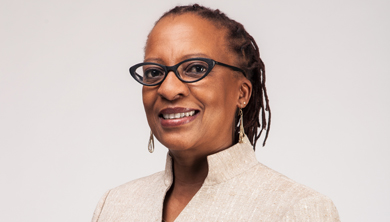
 From an “African” perspective, leadership development is often conspicuous by its absence in most discourse and initiatives. While the importance of leadership in developing societies is sometimes highlighted in Africa’s policy circles, its essential role in building and maintaining good institutions to ensure continental development is often taken for granted.
From an “African” perspective, leadership development is often conspicuous by its absence in most discourse and initiatives. While the importance of leadership in developing societies is sometimes highlighted in Africa’s policy circles, its essential role in building and maintaining good institutions to ensure continental development is often taken for granted.
African development challenges are as complex as they are multifaceted. “Their resolution ultimately depends on the capacity of people who are in leadership positions to understand what is happening around them, both internally and externally,” notes Dr Renosi Mokate, Executive Director and CEO of Unisa’s Graduate School of Business Leadership (SBL). “These individuals must have the ability to take appropriate steps and cope with the variety of problems surrounding them.”
Leadership development is currently a priority for capacity building in Africa. What constitutes “African” as opposed to “Western” leadership however is still up for debate in most circles.
“Today, the discourse on African development is increasingly focusing on capacity for leadership and governance – and rightfully so”, explains Dr Mokate. “This focus goes on to capture its role of African leaders to engender economic growth, promote development, and ensure poverty alleviation across the region.”
While the connection between leadership and good governance, and outcomes in terms of economic growth, development, and poverty reduction is clear, determining the circumstances that produce the kind of leadership qualities that are able to make a positive impact on the continent’s development – from an African perspective – is not always so simple. “Currently, there is no theory of what ‘good’ leadership in postcolonial Africa looks like, except one of ‘muddling through’ as we move forward. This is simply theory: not as articulated, but as lived.”
While different views and philosophies underpinning the African versus Western leadership debate can be surmised from literature – and practical examples – available today, there are certain common attributes expected from “good” leaders irrespective of where they are from. “In real life, there is a place for all the different range of leadership roles depending on circumstances. What differs is the issue of context,” notes Dr Mokate. “This means that the debate is really about the socio-cultural context in which modern day leaders operate and need to be sensitive to. This is probably the trickiest part about leadership.”
She adds that theoretically and from a values point of view, one can subscribe to any type of framework or approach of leading. However, the context will always act as an impediment if, as a leader, you don’t fully understand what is going on around you. “As such, African leaders have to acknowledge that context remains important when discussing the need for a new breed of visionary leaders for the continent.”
Given that future leaders come from the ranks of today’s general public, there is a pressing need to understand that the development of the region is contingent on the development of relevant leadership competencies in current and future leaders. “This makes it important for the continent to continue focusing on developing leaders that serve their communities, act courageously with their people’s best interests at heart and, ultimately, are working towards leaving a sustainable legacy that benefits future generations,” concludes Dr Mokate.
Publish date: 2017-04-06 00:00:00.0
Contact the Marketing and Communication office: Ms Thami Kaunda at kaundn@unisa.ac.za
011 652 0339
Telephone: +27 11 652 0248 / +27 11 652 0291
Email: sbl@unisa.ac.za
Physical Address:
Cnr Janadel and Alexandra Avenues
Midrand, 1686
Gauteng, South Africa
Download map & directions (PDF)